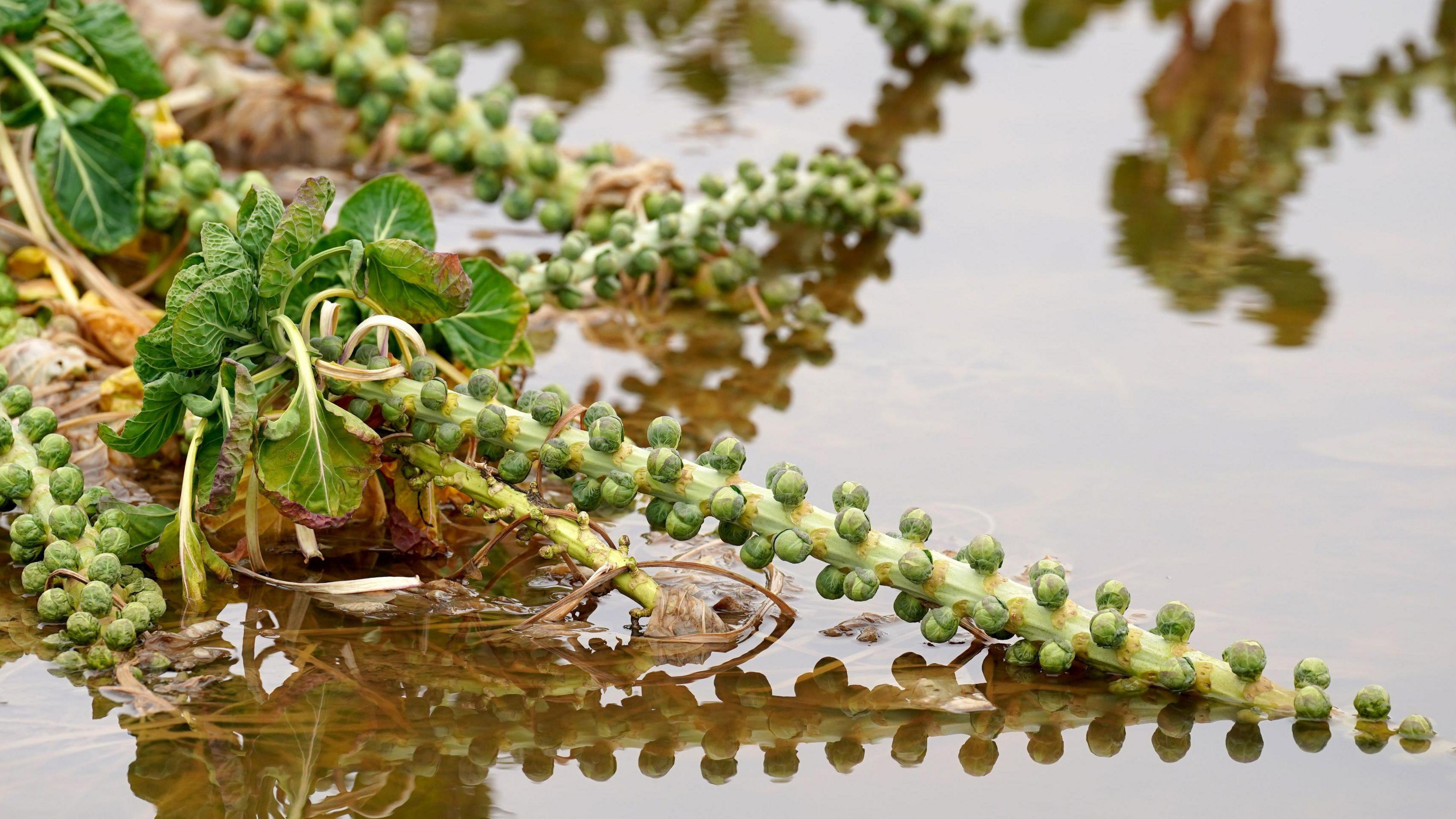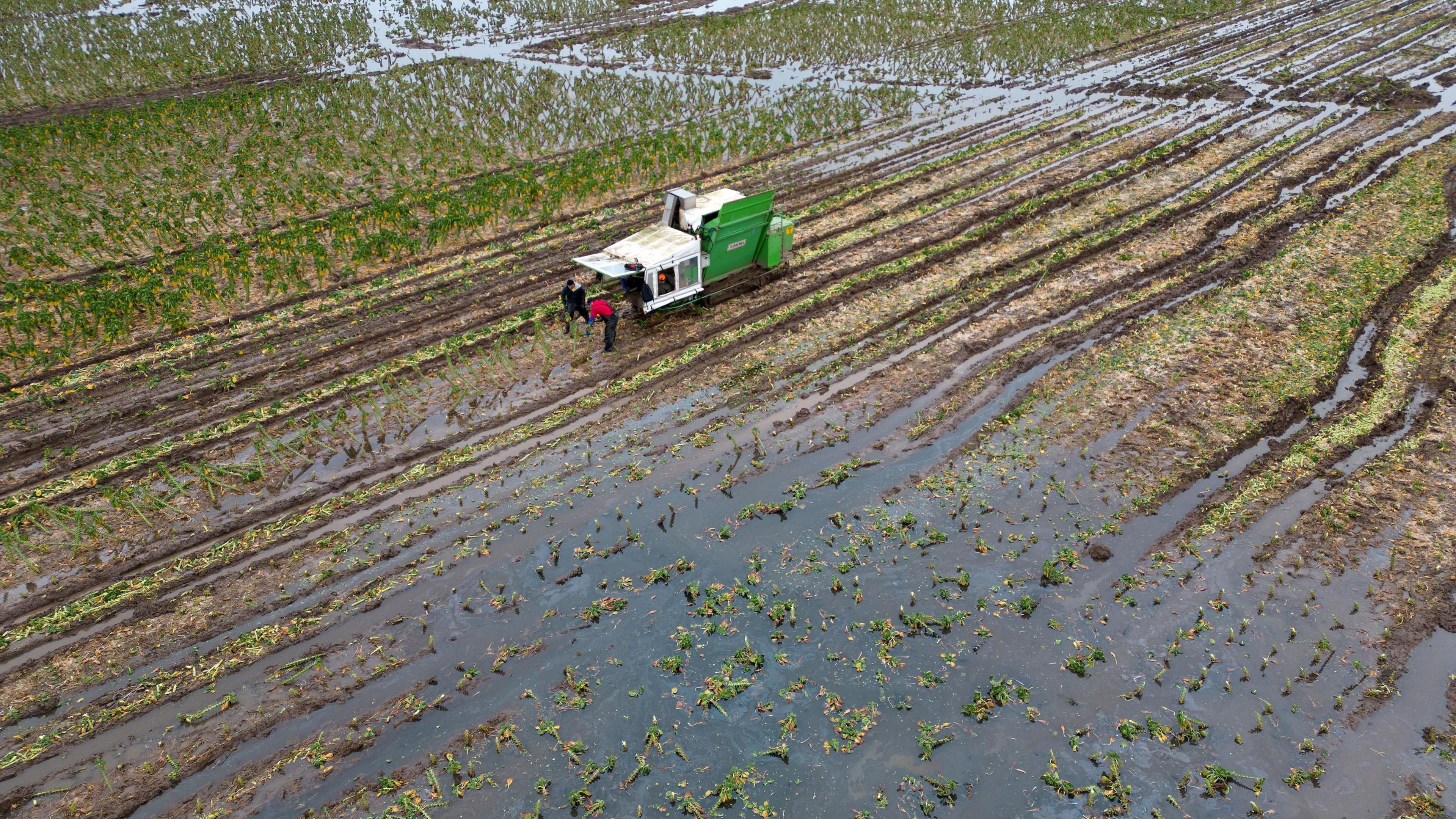Tesco accepting smaller veg from flood-hit farmers

Swathes of Lincolnshire farmland have been hit by flooding this month
- Published
A supermarket chain is temporarily accepting some smaller-than-usual vegetables from flood-hit farmers.
One business which reported sprouts growing underwater due to flooding said it was a race against the clock to pull vegetables from the ground before they rotted.
A relaxation on size requirements by Tesco on sprouts, cauliflowers, cabbages and leeks is said to be helping keep British vegetables on the shelves and reducing any risk of shortages.
John Moulding, from grower TH Clements, said the recent flooding was "the worst we've had this century".
Heavy rainfall and subsequent flooding has affected growers around the country, including in Lincolnshire.
TH Clements, based near Boston, reported that there had only been a handful of dry days since October, which had made harvesting difficult.

TH Clements and Son Ltd, near Boston, has faced challenges harvesting winter crops
Commercial director Mr Moulding said the company had lost about 20% of its winter crops.
He said: "It's been a very tough time for us for more than three months both physically and financially in having to pull the vegetables out of the muddy fields.
"We have literally had to race against the clock to get the vegetables pulled out of the ground to stop them from rotting.
"The flexibility that Tesco has given us has allowed us to maximise the amount of product we can get on their shelves therefore guaranteeing greater availability for shoppers."

Tesco says the move would support farmers and keep winter vegetables on supermarket shelves for consumers
In order to dry wet sprouts the retailer has worked with growers to develop a new drying method, using cool air blowers to blow the water from them in their storage pallets.
Tom Mackintosh, from the supermarket, said: "By accepting slightly smaller sprouts, cauliflower, cabbages and leeks, we can support the fresh produce industry while ensuring that customers are able to continue to buy British winter vegetables."
The National Farmers Union said January's poor weather had disrupted the growth of many harvests.
Martin Emmett, from the NFU said: "We have no expectations of shortages currently, but it remains important that we make the best of what’s available with supermarkets offering flexibility to growers when it comes to crop specification.
"In doing so the food chain from farm to plate will avoid unnecessary food waste."
Related topics
Related stories
- Published5 January 2024

- Published8 January 2024
